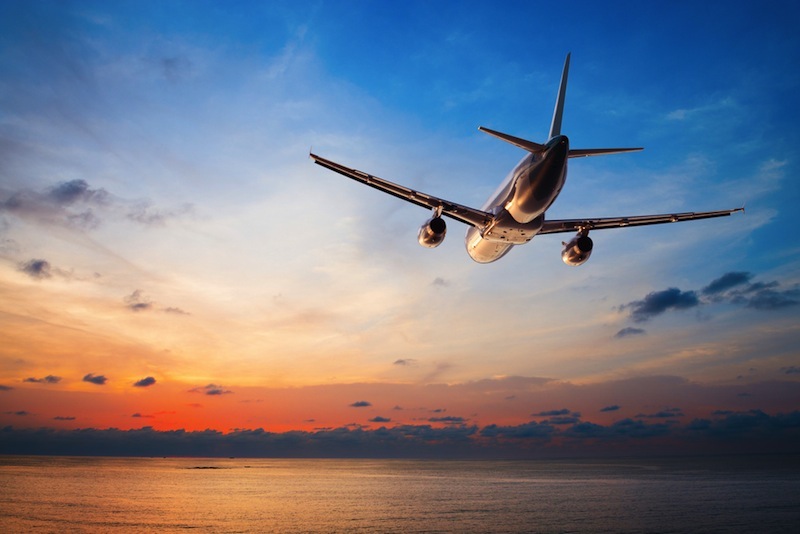Emergency Plane Landing Yields PTSD Clues

Get the world’s most fascinating discoveries delivered straight to your inbox.
You are now subscribed
Your newsletter sign-up was successful
Want to add more newsletters?

Delivered Daily
Daily Newsletter
Sign up for the latest discoveries, groundbreaking research and fascinating breakthroughs that impact you and the wider world direct to your inbox.

Once a week
Life's Little Mysteries
Feed your curiosity with an exclusive mystery every week, solved with science and delivered direct to your inbox before it's seen anywhere else.

Once a week
How It Works
Sign up to our free science & technology newsletter for your weekly fix of fascinating articles, quick quizzes, amazing images, and more

Delivered daily
Space.com Newsletter
Breaking space news, the latest updates on rocket launches, skywatching events and more!

Once a month
Watch This Space
Sign up to our monthly entertainment newsletter to keep up with all our coverage of the latest sci-fi and space movies, tv shows, games and books.

Once a week
Night Sky This Week
Discover this week's must-see night sky events, moon phases, and stunning astrophotos. Sign up for our skywatching newsletter and explore the universe with us!
Join the club
Get full access to premium articles, exclusive features and a growing list of member rewards.
This story was updated at 1:15 pm ET on Aug. 14.
Interviews with the survivors of a 2001 emergency plane landing are helping researchers understand how certain memories may increase the risk for post-traumatic stress disorder (PTSD), a new study finds.
The study's lead researcher has firsthand knowledge of the calamity. Margaret McKinnon, an associate professor of psychiatry at McMaster University in Ontario, Canada, was on her honeymoon when Air Transat Flight 236, en route from Toronto to Lisbon, Portugal, ran out of fuel over the Atlantic.
A nightmarish scene unfolded over the next 30 minutes. The pilots asked the passengers to put on their life vests, the cabin depressurized and McKinnon put on her oxygen mask, she told Live Science. [5 Real Hazards of Air Travel]
But the pilots spotted a runway on a Portuguese island, and were able to glide the plane down for a rough landing. McKinnon slid down the emergency slide while the roof of the plane burned. Everyone on the plane survived the accident.
"I was very grateful to have survived and also very confused because I wanted to know what happened and why it had happened," McKinnon said.
Now, she is using the event to learn more about PTSD, a condition that causes people to feel reoccurring fear or stress after a traumatic event. She and her colleagues recruited 15 passengers from Air Transat Flight 236, including six who had been diagnosed with PTSD, and a control group of 15 people from the public to examine how memories of traumatic events are related to PTSD, according to their report, published today (Aug. 13) in the journal Clinical Psychological Science.
Get the world’s most fascinating discoveries delivered straight to your inbox.
In interviews, the passengers related their memories about the flight, along with their memories of the terrorist attacks of Sept. 11, 2001, and a neutral event, such as a family dinner. The people in the control group talked about an event that was troubling to them, such as a breakup, in lieu of the emergency landing.
The passengers recalled vivid memories of the emergency landing, such as what they were feeling and details about the person sitting next to them, the researchers found. This finding contrasts with previous research that had suggested that people with PTSD don't remember trauma well, McKinnon said.
The vividness of people's memory did not predict their PTSD risk, but the types of memories that people had were associated with their PTSD risk, the researchers found. People diagnosed with PTSD tended to remember more general details about each event they discussed, including memories from their lives not related to the episode, memories that were not time specific and editorialized statements such as "It was horrible," than the passengers and other people without PTSD did.
Remembering general details about these events may increase the risk for developing PTSD after a traumatic event, the study found.
"What our findings show is that it is not what happened, but to whom it happened that may determine the subsequent onset of PTSD," Brian Levine, the study's principal investigator and a senior scientist at Baycrest Health Sciences in Toronto, said in a statement.
The study, however, was small, and not generalizable across different types of trauma, such as sexual abuse or fighting in battle, the researchers said.
Editor's Note: This story was updated to correctly give Brian Levine's title.
Follow Laura Geggel on Twitter @LauraGeggel and Google+. Follow Live Science @livescience, Facebook & Google+. Original article on Live Science.

Laura is the managing editor at Live Science. She also runs the archaeology section and the Life's Little Mysteries series. Her work has appeared in The New York Times, Scholastic, Popular Science and Spectrum, a site on autism research. She has won multiple awards from the Society of Professional Journalists and the Washington Newspaper Publishers Association for her reporting at a weekly newspaper near Seattle. Laura holds a bachelor's degree in English literature and psychology from Washington University in St. Louis and a master's degree in science writing from NYU.
 Live Science Plus
Live Science Plus










